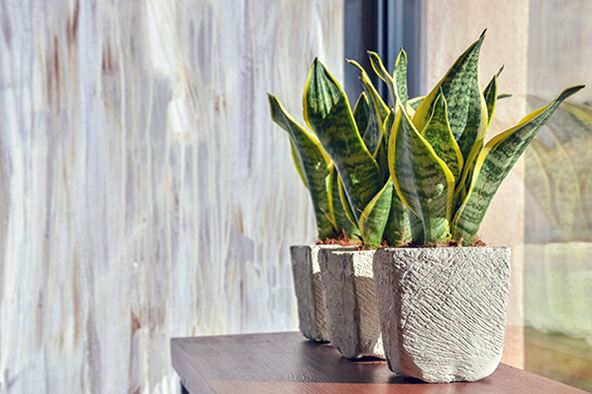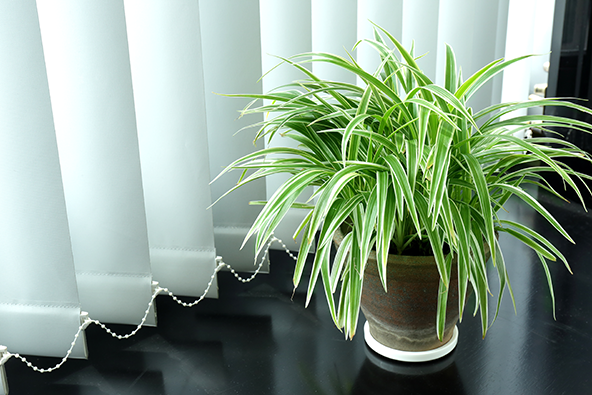Improve Your Mental & Physical Health by Simply Adding Houseplants

Plants are very important. It’s no secret plants are an essential part of our survival. Think about it: food, buildings, natural medicine, oh and the process of taking carbon dioxide and transforming it into co2. It will come as no surprise then, recent studies show that household plants have a direct impact on our wellness.
There are a number of reasons why having indoor plants might improve our mental health, and general consensus is they’re preferred to smell and look at. Wallpaper and carpet have a hard time competing with living things and vibrant colors. A recent study supports this notion in its findings that there is a direct correlation between the amount of care required to keep a plant from dying and the positive psychological effect it had in its caretaker. According to the research, those who have extended periods of time around plants tend to have healthier relationships with others and consequently experience higher levels of happiness.

Fact: Plants Help People
Another study found that flowering houseplants provide increased levels of happiness and therefore, having flowering houseplants around the apartment home and in the workplace has the potential to significantly minimize stress levels. Science is science. Studies have shown that people who have been around plants are almost always more likely to offer help to others, and often have more active social relationships. It makes sense, people who care for houseplants are more likely to care for others, reaching out to their peers and building shared bonds because of their mutual interests.
Plants Reduce Stress
Natural aesthetic beauty is known to have a calming effect, and having ornamental plants around the home is an awesome way to decrease stress and anxiety. As a result of the increased happiness derived from a home that has plants in it, the likeliness of suffering from stress-caused depression is reduced as well. The research supports that by having plants in your home or work place, you improve your mental health by inducing peace and open spaces to your brain.
Plants Help You Remember Your Honey To-Do List
Having ornamental houseplants in the office increases memory retention and concentration. How? Natural environments, and the calming influence created by them, increases a person’s ability to focus on the task at hand. Going outside or being under the influence of plants inside can boost memory retention close to twenty percent, a recent University of Michigan study reported (Sewach).
Are you convinced yet? Great. Here are two ideas for great plants to have in your home:

Spider Plant
Spider plants are a very popular indoor botanicals, and your friends are going to enjoy them because , spider plant. Best. name. ever. They’re very easy to care for, and spider plants are especially good at absorbing mold and allergens from the air and can be put to good use in places that are prone to dampness: bathrooms and laundry room. Spider plants are mainly easy to care for, too. Give them with bright, indirect light and it will flourish. Water the houseplant well but do not water it too much to the point of it becoming soggy, which can lead to root rot. Even better, spider plants are okay to dry out a bit between waterings.
Snake Plant
A study of CO2 conversion in houseplants by Harvard University discovered that the snake plant is one of the most oxygen-producing plants. Oh—by the way, ficus and pothos are other plants on the list. One of the most important snake plant health benefits is snake plant's can make small and ongoing contribution to get rid of toxic air pollutants. Other than CO2, they can absorb benzene, formaldehyde, xylene, and toluene; all of which are cancer-causing pollutants. Snake plants are some of the easiest to care for plants out there as they can withstand weeks of neglect without losing neither shape nor vibrant look. Snake plants can thrive in environments with minimal light and water.
See any similarities with our two suggestions? If you have kids, we’re trying to help it easier to get them excited! Who doesn't love plants named Spider and Snake?
